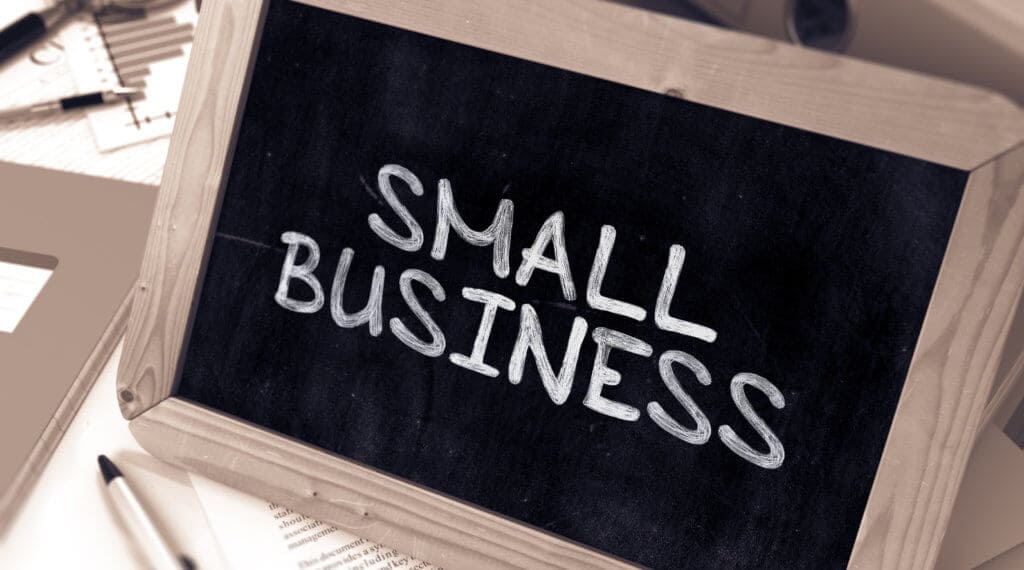How to start a business
September 30, 2022 Comments Off on How to start a business Business Rachel DenialA business can be described as an organization or enterprising entity that engages in professional, commercial or industrial activities. There can be different types of businesses depending on various factors. Some are for-profit, while some are non-profit. Similarly, their ownership also makes them different from each other. For instance, there are sole proprietorships, partnerships, corporations, and more. Business is also the efforts and activities of a person who is producing goods or offering services with the intent to sell them for profit.
Business refers to an enterprising entity or organization that carries out professional activities. They can be commercial, industrial, or others. For-profit business entities do business to earn a profit, while non-profit ones do it for a charitable mission. Business ownership includes partnerships, sole proprietorships, corporations, etc. Businesses can be small-scale or large-scale. Some of the biggest businesses in the world are Amazon and Walmart.
Follow this Steps for start a business
1. Start with a business idea
Begin by solidifying a business idea and doing your market research. Before you start planning, make sure you have a clear idea of what you want your business to be. This is also the time to research your industry to determine trends and identify key competitors and how you can differentiate yourself.
2. Write a Business Plan
A business plan is where you plan out your business’s future objectives and how you will achieve them. Think of it as your guide for success and any potential roadblocks you may face. Your plan should show you’re looking three to five years ahead, and include markers for milestones along the way.
You need a business plan for a couple of reasons. First off, it’s a blueprint for how you’re going to start, run, and then grow your business — something you can look back on for reference and measure yourself against. Secondly, if you’re seeking outside funding, you need a business plan to show that you’ve thought things through carefully.
When it comes to writing a business plan, there’s no one-size-fits-all approach. There is a bounty of resources out there to help entrepreneurs like you get started.
But even though business plans vary, they all typically contain a few key components. When you think about formatting, it’s a good idea to use the below sections as a template — including visuals like graphs and projections where appropriate. Length can also fluctuate depending on what you’re trying to do but, typically, business plans are between 15 and 20 pages long.
Here’s an overview of what your business plan should include:
- Executive summary: A top-line description of your business and how you’re going to accomplish your goals
- Business description: Your elevator pitch, conveying your business idea in a concise manner
- Market analysis: A current landscape of the market and a description that identifies your target market
- Competitive analysis: The strategic research outlining information about competitors in the space
- Service and product line: Details on what type of service or product you’re offering
- Operations and management plan: How you’re going to get up and running, and then manage day-to-day operations
- Financial considerations: A financial analysis of all the capital you need to start, run, and grow your business
3. Determine a Business Model to Make Money
As you lay the groundwork for your new business, it’s important to consider the different types of business models you may want to pursue. A business model is the way a company plans to make money with its product or service. It is an explanation for how you will deliver value to your customers and includes who your customer base is, products or services you plan to sell, and costs that will be incurred.
Here are different types of business models to evaluate:
- Distributor: A distributor purchases products, stores them, and subsequently sells them through a distribution channel. The selling of these products may take many forms, such as selling using the aid of a sales team or a reseller.
- Wholesaler: A wholesale business model means a business is selling products in bulk to a retailer, often at a discounted price. These retailers will in turn sell directly to customers.
- Subscription: In a subscription business model, customers make a recurring payment on a monthly, quarterly, yearly, or other consistent basis for a product or service.
- Freemium: Freemium business models are a combination of “free” and “premium.” The business might give away the service at no cost while offering more advanced or additional services for a fee.
- Marketplace: Marketplace business models are where multiple sellers or vendors come together to sell products to customers.
- Direct-to-consumer: A direct-to-consumer business model is when a business sells directly to the consumer rather than through vendors, retailers, or resellers.
- Razor-razor blade: A razor-razor blade business model is when a product or service is sold at a lower price to increase sales of a complementary or paired product. For example, a razor might be priced at a lower cost in order to increase sales of the razor blades necessary to use it.
- Consulting services: Your business can offer consulting services by sharing your expertise with others. Businesses might hire a consultant to provide guidance on a specific project or over a specific amount of time.
- Franchisee: In a franchise business model, the franchisee pays a fee to the franchise in order to license the name and operating systems of the business.
4. Choose Your Business Name
It’s time to make things real: Decide on your business name (an important branding exercise in itself) and register it with the government.
Here are some steps to get you rolling with your business name:
- Brainstorm business name ideas.
- Make sure the name isn’t taken.
- Use tools to generate and verify the business name.
- Consult an expert.
- Trademark your business name.5. Choose Your Business StructureEach type of business entity — sole proprietorship, partnership, LLC, corporation — has its own unique tax, legal, and structural implications. Because of this, it’s smart to consult a reputable accountant and lawyer before officially deciding on what form of business entity you want to establish. It’s also a good idea to spend some time with the IRS Small Business and Self-Employed Tax Center, as well as the the State and Local Tax Guide.
You need to register your name or DBA (doing business as) name with the county clerk’s office or your state government, depending on where your business is located. But before registering your business name, you have to decide on a business structure. If you’re stuck, the IRS is a good place to start.
Registering your business name is usually part of the process of registering LLCs and corporations. But if you’re starting a sole proprietorship or a partnership operating under a name that isn’t your own (e.g., your name is John Smith but you want your business name to be something else), you may need to file a DBA.
6. Get Your Licenses and Permits
Most businesses require licenses or permits to operate. If figuring out licensing and permits sounds overwhelming, you might want to think about consulting an attorney in the beginning stages, just to make sure you are compliant with all rules and regulations. Outside of a general business license, and depending on the type of business you’re building, you may need additional licensing and permits.
. Determine Your Business Startup Costs
Starting a business does come with a variety of upfront costs that all business owners incur while getting their new venture off the ground. Proactively making allowances for expenses will help you track your working capital or the measure of how much liquidity your business has.
While every business is different, and startup costs vary, there are a few expenses that are common to most businesses:
- Employee expenses: You’ve probably considered labor costs as part of your business plan. Factoring in wages, salaries — including your own — and employee benefits will help you better manage your cash flow and plan ahead as you scale your business.
- Bills and utilities: Consider the bills and utilities related to your business. Regardless of whether you own or rent your physical space, you can expect to manage payment for utilities ranging from water and electricity to installing and maintaining WiFi. Both online and brick-and-mortar businesses may incur bills related to their website’s hosting service subscription, customer support software, point-of-sale systems, or accounting software.
- Equipment and supplies: Different types of businesses will require different equipment. Think through the inventory, property, and equipment needs that are related to your business so you can determine if owning or leasing those supplies might be best. For example, a hair salon will have different equipment and supply needs than a food truck.
- Insurance, licensing, and permit fees: Protecting your business by making sure you have all the appropriate licenses and permits to operate should be a top priority. A lot of licenses and permits do come with processing fees, and some with annual fees. These should be factored into your business’s budget.
- Marketing materials: You may rely on print or digital marketing to increase awareness and sales for your business. Keep in mind any costs related to printing or distributing marketing materials.
Overhead costs can be sorted by fixed, variable, and semi-variable. Take a look at where your costs might fall, or calculate a break-even analysis to help forecast future business decisions and stay on top of cost accounting.
As you grow your business, you may want to consider financing. Taking on business financing is a way to provide funds for your business and can take the shape of a traditional loan, line of credit, credit card, and more.
8. Find a Location (or Focus on eCommerce)
Where will you conduct business? This can vary widely based on the type of business you’re running. If you’re a home contractor, for example, you may not even need to rent a physical office. But if you’re opening a salon, on the other hand, you need a space you can use for cutting hair.
Choosing a physical space is one of the most challenging aspects of starting a business. But it’s also one of the most important and requires loads of research and planning. For starters, you have to understand your city’s zoning laws and have a solid grasp on all the financials (like payroll taxes and any hidden costs) associated with renting a space. For help with this, talk with your city and neighborhood councils, or consider bringing on a professional agent to help.
Aside from laws, fees, and regulations, you should also consider your brand image, the safety and accessibility of the neighborhood, your proximity to any suppliers you might need to work with, and any plans for expansion. Talk to fellow business owners in the area and consult free government-provided data on neighborhood and city demographics to help inform your decision.
Don’t need a physical location? Embrace eCommerce with a free online store.
9. Set up Your Business Bank Accounts
As you set up your business, you will begin to accept and spend money. Separating your business accounts from your personal accounts will help mitigate risks, and it’s crucial to do this right at the start. By setting up business banking for your newly founded business, you start building a track record of your finances that will help inform your future business decisions and options.
Open a business bank account
Opening a business checking or savings account can help keep your finances separate, protecting both your business and your customers. Not only can starting a business bank account create a place for your company to store money, you can start building business credit. Building business credit is important to maintain if you’d like to consider outside financing in the future. In fact, you will be accruing a business credit score separate from your personal credit score.
Here are different types of bank accounts you may consider opening:
- A business checking account, which enables you to receive payments under your business name and spend funds using debit cards, checks, or wire transfers. This is the account you’d use to manage payroll and handle other operational expenses.
- A business savings account, which allows you to store funds safely while they earn interest.
- A business credit card account, which enables you and other authorized users to make purchases on credit and pay them off later.
- A merchant services account, which allows you to accept credit and debit card transactions from customers in a safe manner, with purchase protection for customers and security for their personal information.
12. Create a Brand, Marketing Strategy, and Promotion Plan
While it’s often the last thing new business owners focus on, marketing can be the thing that ensures your new venture is successful.
Build your business and entrepreneurial brand
Your business brand is built around the identity created for your business. You craft a name, mission statement, and vibe. A personal brand is more about what you stand for personally and what you’ve achieved, as opposed to the business side. It’s also what distinguishes you from your competitors. It’s important to work on both.
source 1:- squareup.com































